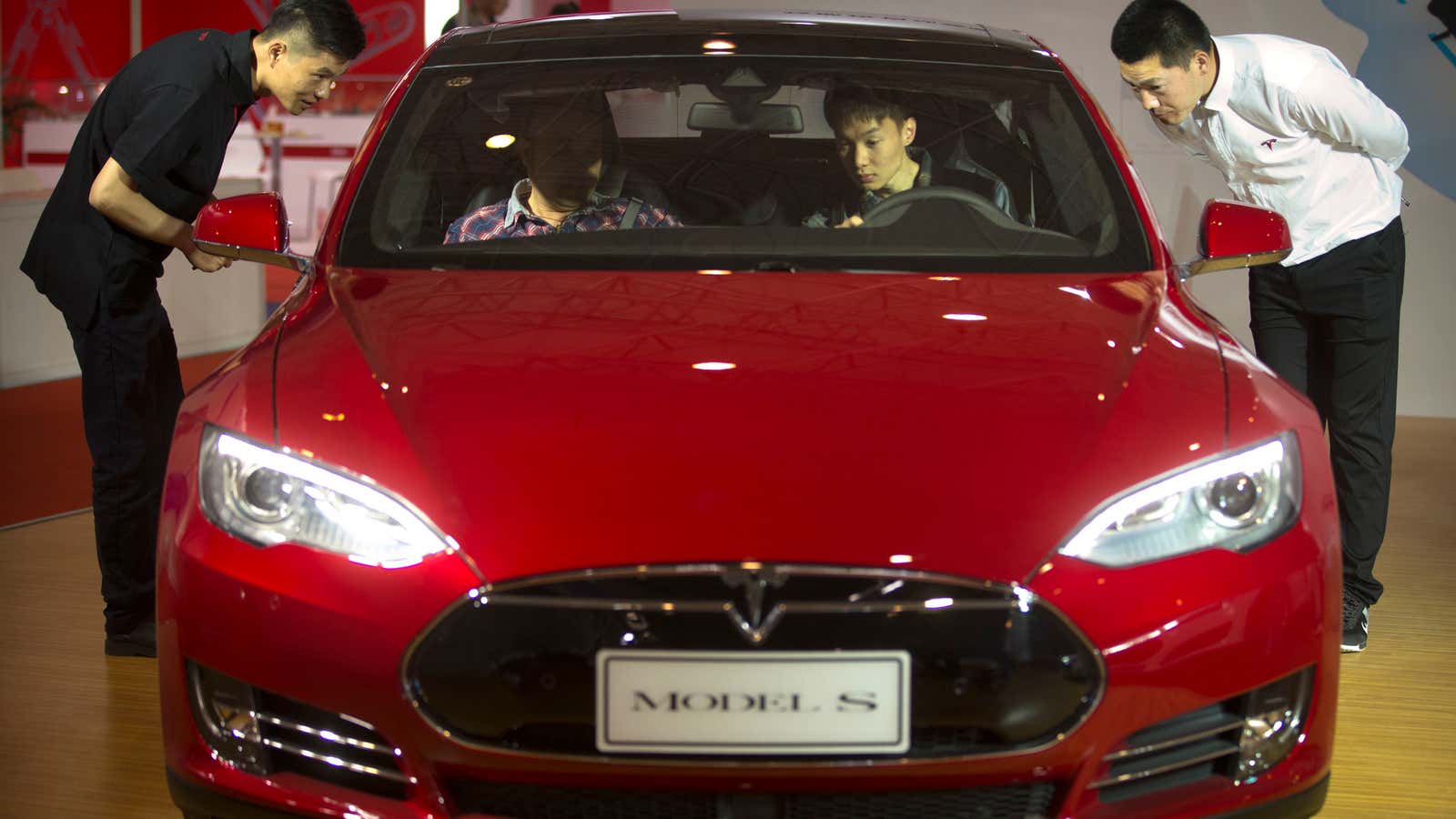Tesla says it has built the fastest production car in the world powered by one of its most potent electric batteries. Yet it won’t be enough to power a new generation of mass market electric vehicles.
Tesla’s CEO Elon Musk said Tuesday (Aug. 23) that an expanded 100-kilowatt-hour battery pack can propel Tesla’s cars to 60 miles per hour in just 2.5 seconds. The optional feature will make Tesla’s souped-up Model S and Model X reportedly faster than any production car besides the two-seater, million-dollar models by Porsche and Ferrari (Tesla’s 5-seat models will sell for around $134,500). It also extends the cars’ range by 20% to 300 miles (483 KM), slightly short of a trip from San Francisco to Los Angeles.
“For the first time, the world’s fastest production car is electric,” said Musk. “This really sends message to the public that sustainable transport is the future.”
The expanded battery pack takes Tesla to the edge of its current technology. “Within the current cell geometry and chemistry, this is quite close to the theoretical limit,” said Musk on a call today (Aug. 23). Engineers have redesigned the software, cooling, electronics and cell layout to fit more power into the same battery pack, akin to ”stuffing 11 pounds into a ten-pound bag,” said Musk. “It gets exponentially harder to increase the energy density.”
Tesla plans to produce about 200 of the enhanced packs per week, enough to power about 10% of total vehicle production volume. The packs are available as a $10,000 upgrade for current Tesla owners.
To gain future improvements, the company must rethink the architecture and chemistry of its batteries. That task falls to the Gigafactory, the sprawling battery manufacturing plant Tesla has built with Panasonic in the Nevada desert. Fresh battery cells and packs should start rolling off assembly lines in late 2016. The new cell dimensions, along with advances in pack design and chemistry, are designed to achieve higher energy density at lower prices.
That’s key to competing with new entrants such as GM’s upcoming Chevrolet Bolt EV launched later this year. Karl Brauer, senior analyst at Kelley Blue Book, said Tesla’s latest announcements have done little to prove it can beat out incumbent car markers at selling a mass-market vehicles.
“What Musk is really doing is highlighting an evolution that all batteries will go through and will be available to all car companies,” said Brauer in an interview. He fears engineering work on the upgraded battery just served to distract Tesla from improving its financial position. “It would be really fabulous if Elon came up with a path to profitability,” he said.
